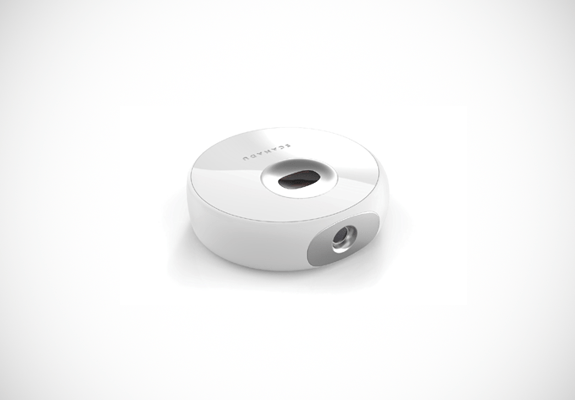Today the Indiegogo campaign for Scanadu Scout became the highest funded in the site’s five year history. At over $1,378,545 and counting, Scanadu has broken the $1,370,461 record set by Let’s Build A Goddamn Tesla Museum.
The Scanadu is a small, round scanner that takes a person’s vital signs and sends them wirelessly to his or her smartphone. It seems to have hit on an unserved consumer need for medical empowerment. Right out of the gate, the campaign met its initial goal of $100,000 in less than two hours and doubled it in five.
With eight days left and 7,000 funders from 100 countries already invested, it’s hard to say how much higher that number will climb. In the time it took me to write this article, it raised another $4,000 or so.
Scanadu Scout and the Tesla Museum are two of four Indiegogo projects to exceed $1 million. They are also two of a handful that have extended their campaigns past the original deadline.
Danae Ringelman, the co-founder and Chief Customer Officer of Indiegogo, said the site places fewer restrictions on campaigns in order to allow them to fully test their market and lower their risk of failure when they enter the market. Owners can add perks to see what features might sell, adjust pricing, and see if their project has the critical consumer mass to work in the real world. Indiegogo does not feature any campaigns on the homepage in an effort to keep the market meritocratic.
Still, it’s not clear why Scanadu Scout, which had almost certainly validated its market before its extension date, took the extra time.
In Indiegogo’s meritocracy, all campaigns can extend once, and it wouldn’t be surprising if more and more chose that option. For campaigns that have already seen a great deal of interest, this would function as an incubator for fine-tuning the product, interacting with consumers, raising still more money, and advertising. For those that haven’t taken off, an extension might simply be a waste of time.
It’s not clear that this is a particularly good or bad thing, but it does change the nature of what crowdsourcing means, at least on Indiegogo.
Scanadu creator Walter De Brouwer told us that the scanner had been developed almost entirely in a vacuum without consumer testing and that he initially had reservations about crowdsourcing the project. But it was ultimately the best way to gauge consumer interest.
The next phase of Scanadu Scout’s production is to develop the educational component of the device. In order for people to take a more active role in their health, they need to not only have the data, but know what the data means and how to act on it. De Brouwer calls this a consumer, rather than clinical, pathway to medicine.
